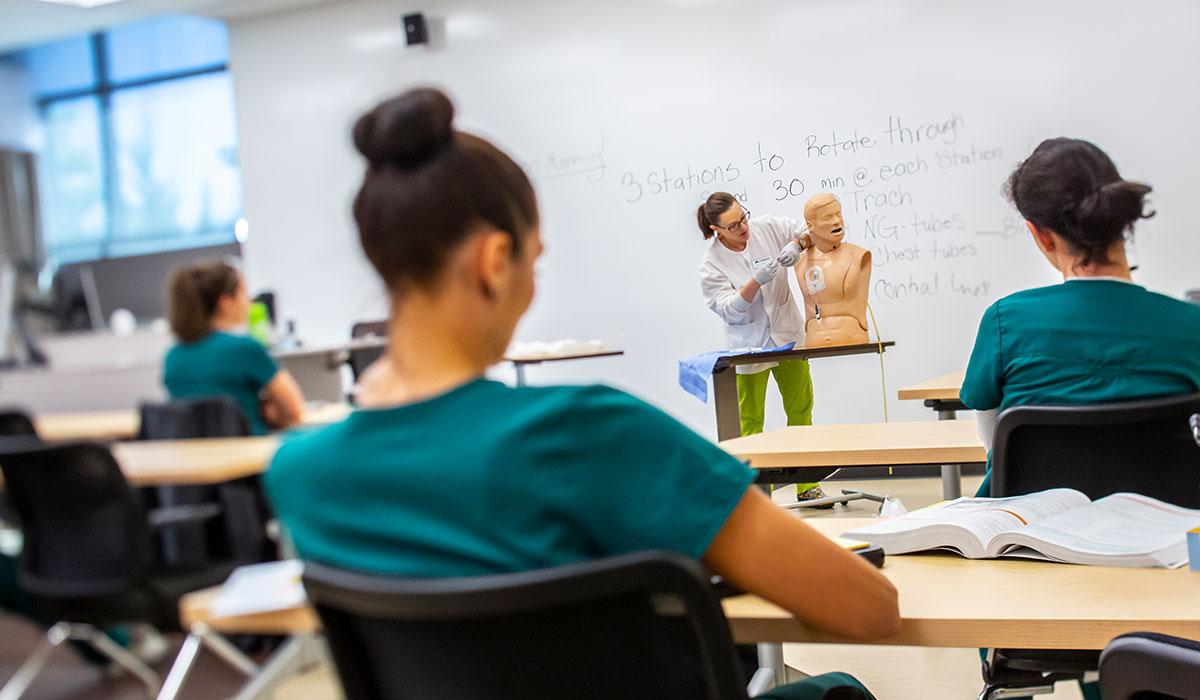
Are you a practicing RN with an associate degree from an accredited program who’s looking to open up opportunities to advance in your career? If so, TMCC has an Rx for that: the new RN to BSN program is accepting up to 20 applicants for its first cohort that begins July 2021.
Why a Bachelor’s Degree Matters
In 2010, the Institute of Medicine (IOM)—now the National Academy of Medicine—called for 80% of RNs to earn their BSN by 2020. This recommendation was part of the IOM's landmark report The Future of Nursing: Leading Change, Advancing Health.
The nation's changing demographics is partly behind the push for RNs to achieve higher levels of education. As one example, the population of adults 65 and older is growing rapidly. In fact, the Population Reference Bureau reports that the current growth of this population is unprecedented in U.S. history. Meeting the complex needs of older adults presents significant challenges to the healthcare system.
Research suggests that BSN nurses are better prepared to meet these needs. BSN preparation for nurses correlates with lower patient mortality rates, fewer medication errors, and increased positive outcomes, according to the American Association of Colleges of Nursing (AACN).
“A lot of facilities across the country are starting to require a bachelor’s degree as an entry to practice,” explained TMCC Nursing Program Director Jody Covert. “We want to offer our students the opportunity to get a bachelor’s degree because many facilities in our area are making that switch, and want the nurses they hire moving forward to have a bachelor’s degree.”
With a new hospital opening in the Reno-Sparks area in 2022, Covert sees the demand for bachelor’s-educated nurses on the rise in our community. Yet, for students who chose TMCC’s associate degree program for its high standards and relatively affordable costs (in terms of both time and money), TMCC’s RN to BSN program is designed to not only meet the changing needs of the profession but also the needs of students who may already be working in the field.
“There is a shortage of nurses right now, and our graduates of the two-year associate program are still going to find jobs because they are certainly well prepared,” she said. “However, this program offers students who are already an RN and who have passed the NCLEX an opportunity to open more doors in their careers, and to pursue leadership positions if that is something that calls to them.”
RN to BSN: Program Details
The RN to BSN is a dynamic program that takes its students from their RN to a BSN in 12 months. The program is completely online, making it doable for those who hold a degree from an accredited program, and who may also currently work as a nurse. The program provides a large focus on leadership, evidence-based practices, research, community and community health assessment.
While the RN to BSN does not replace TMCC’s associate degree program in Nursing, it will remain an additional possibility for students who are looking to enrich their knowledge of this vital profession while opening doors to career advancement. The RN to BSN is currently accepting applications. However, don’t wait too long: the program will only accept up to twenty successful applicants.
“[This program] meets the needs of students who want to get into leadership and management roles, but they don’t have a lot of extra time and money to do it because they are currently working or they have just recently received their associate degree,” said Covert.
The RN to BSN also shares several attributes with the two-year program, including a focus on excellence, rigor, and results. Last semester, 100% of nursing students in the associate’s program passed the NCLEX exam, and graduates of the program have no trouble finding careers. There’s no question that the RN to BSN will expand this level of excellence to those who complete the new 12-month program.
For more information about the RN to BSN, contact TMCC’s Maxine S. Jacobs Nursing Program at 775-850-4054.






